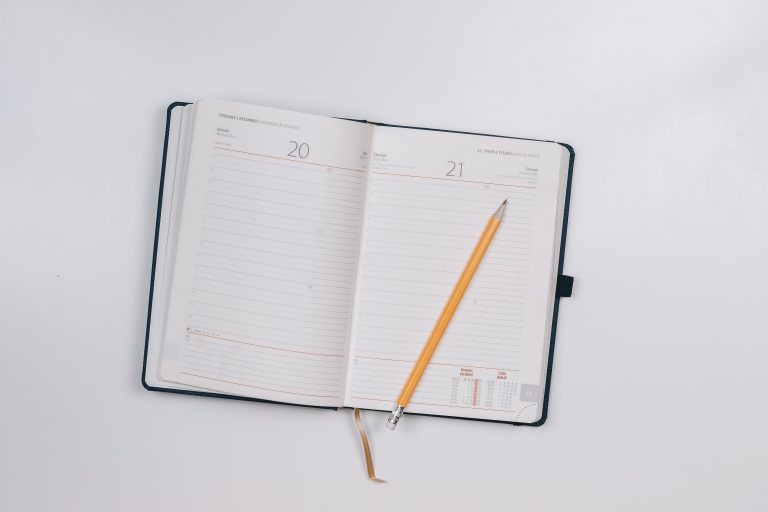How to Achieve Financial Stability (step by step)
Are you looking to establish better financial stability in your life?
If so, you’re not alone. A lot of people are looking for ways to improve their finances and build a more secure future for themselves and their families.
Luckily, there are some things you can do to help achieve this goal.
You can achieve financial stability by tracking your income and outgoings, living within your means, and looking for ways to save, earn and invest more in yourself and productive assets.
In this blog post, we’ll discuss some tips for improving your finances and how to achieve financial stability. So if you’re ready to get started, keep reading!

What does it mean to be financially stable?
Being financially stable means having a regular income and spending less than you earn.
It means being able to pay your bills and save for the future without having to worry about money.
It means having a solid financial foundation that will help you weather any storm. And it means knowing that you’re doing everything possible to secure your future.
Everybody dreams of someday achieving financial stability, but this can be hard to do. It takes a lot of hard work, planning, and dedication in order to get your finances in order enough to make your life and financial dreams a reality.
These are some of the things that you need to do in order to start working towards financial stability.
- Know your numbers – track what is going on with YOUR money
- Invest in yourself – go on courses that will help you earn more and get better jobs or start a business.
- Invest in assets – things that will grow in value and provide you with an income
- Improve your financial literacy – listen to podcasts or read financial freedom-related books.
- Think about and write down your goals in every area of your life, short and long terms goals.
- Make your personal finance personal remember, its your money and life.
Live Below Your Means
This is a common piece of financial advice that you have probably heard several times before. It is worth repeating though, because this is critical for achieving financial stability.
The problem is that it can be very hard to do this. There are millions of us who are struggling with our finances and have to live paycheck to paycheck.
We also live in a world where it is very easy and tempting to spend more money than you should on impulsive purchases that you do not need.
If you can resist this temptation and avoid spending too much money, you will be set on your journey to achieving a strong financial foundation.
Create a Budget
It is almost impossible to achieve financial stability if you do not create a realistic budget and stick to it.
A good rule for budgeting is to follow the 50-20-30 rule.
This is when you devote half of your paycheck to your expenses.
This includes things like rent, mortgage payments, food, utilities, gas, clothing, and other expenses that you have.
You should also devote at least twenty per cent of your paycheck to your savings account and investments.
The final thirty per cent of your paycheck can be spent on your entertainment and leisure.
If you can create a realistic budget like this or a version that works, you will be well on your way to achieving the financial stability you dream of.
Get Out of Debt
You can never achieve financial stability if you are living in debt.
Living in debt will destroy your personal finances, and there are two main strategies that you can use to dig yourself out of debt.
These are called the snowball method and the avalanche method.
When using the snowball method, you first focus on paying off the debt with the smallest balance.
While you do this, you make minimum payments on the rest of your debts. Once you pay this debt off, you move on to the debt with the second smallest balance, and you proceed to pay your debts off in increasing order.
The avalanche method is the other way to get out of debt. With this method, you are not worried about the balances of your debts so much, you are focused on the interest rate that they accrue.
You focus on paying the debt with the highest interest rate first and make minimum payments on the rest of your debts.
This could be credit card debt, car payments or personal loans with a high-interest rate.
Once you have paid this one off, you focus on paying off the debt with the second highest interest rate.
Create an Emergency Savings Fund
You also need to have an emergency fund in case you lose your job or encounter some other sort of financial hardship.
It is ideal to devote at least twenty percent of your paycheck to your savings and investments.
You should build your emergency savings fund before you focus on retirement savings and investments.
The amount of money that you need to put into your emergency fund varies depending on your financial situation and the size of your family.
However, financial experts usually recommend that you have at least three to six months worth of living expenses saved away in case of emergency.
Save and Invest Money for Retirement
Millions of Americans and Brits have no money saved for retirement because they do not want to save money for something that feels like it will be very far away.
Unfortunately, it takes time to build your retirement portfolio, so it is better to start sooner rather than later.
There are a couple of different strategies that you can use to build up your retirement funds.
Many employers offer a pension plan. If the company you work for offers one of these plans, you should take advantage of it because your employer will match a portion of your contributions.
Ignoring your work pension is ignoring FREE MONEY.
Figure Out How to Monetize Your Passion
If you are trying to achieve financial stability, another thing you can do is find a way to monetize your passion.
If you can make your living by doing something that you love, you will be more committed to achieving your financial goals.
What are the things you are good at, love doing a lot of people need and will pay for?
You can then earn income by producing digital or physical products and services to earn extra income.
Follow Your Long-Term Financial Plan
No matter how well you plan, it may take time and persistence for you to achieve financial stability.
You never know when you will encounter an emergency expense, have an urge to take an expensive trip abroad or have the opportunity to buy your dream car for a low price.
But this is why it is important to develop your vision to stick to your financial plan for the long haul.
You can never avoid every emergency and disruption to your financial planning, but if you do your best, you will be able to slowly work your way towards financial security.
Do Not Forget to Enjoy Life
Working towards financial security is important, but it is not so important that it should be the only thing that you focus on.
You should remind yourself to stop and smell the roses too.
Not only will reminding yourself to have fun every now and then make life worth living, but it will also make you happier and healthier, which will lower your medical expenses.
Final Thoughts: How to achieve financial stability
Achieving financial stability may seem like a daunting task, but it is achievable if you follow a plan and stay dedicated.
In this article, we have outlined some basic steps that will help you get started on the road to financial security.
- Knowing and tracking your numbers
- Living below your means
- Building an emergency fund
- Investing in yourself and productive assets
- Getting clear on your life goals
If you want help achieving financial stability, join our free newsletter and start your journey to a bright financial future today.
FAQ: how to achieve Financial stability
What are examples of financial stability?
When it comes to financial stability, a few different factors come into play. One key element is having a steady income stream that can cover your basic living expenses.
This could come from employment, investments, or other sources of revenue. Another factor is having low levels of debt, which gives you more financial latitude and makes it easier to cover unexpected costs or emergencies. Finally, developing healthy money habits – such as saving regularly and spending wisely – can also contribute to greater financial stability over time.
What does it mean to be financially stable?
There are a few key factors that can help you achieve financial stability.
First, it’s important to clearly understand your income and expenses. Knowing how much money you have coming in and where it’s going can help you make better choices about spending and saving.
Second, setting aside money each month into savings is key. Even if it’s just a small amount, putting away money regularly will add up over time.
Finally, staying disciplined with your spending can make a big difference. If you can curb impulse purchases and stick to a budget, you’ll be well on your way to financial stability.
How can I become financially stable?
There are a few key things that you can do in order to become financially stable:
1. Make a budget and stick to it.
2. Save money whenever possible.
3. Invest money wisely.
4. Stay out of debt.
5. Live below your means.
6. Think about the future, not just the present.
Why do we need financial stability?
There are a few key reasons why financial stability is so important.
First, it can be very difficult to meet our everyday needs and expenses without it.
Second, it can be hard to save for the future or invest in our long-term financial security if we’re always struggling to make ends meet.
And third, financial instability can cause a lot of stress and anxiety, which can negatively impact our physical and mental health.
So overall, having a strong financial foundation is essential for meeting our basic needs, planning for the future, and maintaining our overall well-being.
What affects financial stability?
There are a few primary factors that affect financial stability.
One is income. Generally speaking, the more money you make, your finances will be more stable.
Another key factor is expenses. If you can keep your expenses low, you’ll be in a much better position to stay financially stable.
A third important factor is debt. The more debt you have, the less stable your finances will be. Finally, good financial habits also play a role in stability. If you’re careful with your money and save for emergencies, you’ll be in a much better position to weather tough times financially.
How much money do you need to be financially stable?
Generally speaking, you need to have enough money saved to cover at least six months of living expenses. This will give you some breathing room in case of a financial emergency.
Additionally, it’s important to have a solid retirement savings plan in place. You should aim to save at least 15-20% of your income each year to save enough money to cover your costs during retirement.
If you can follow these two tips, you should be able to live comfortably and be financially stable for years to come.
How do I know if I’m financially stable?
Financial stability means different things to different people. However, there are some key indicators that can help you get a sense of whether you’re on solid financial footing
To start with, take a look at your income and expenses. Are you bringing in more money than you’re spending? If so, that’s a good sign. Having a budget can help you track where your money is going and ensure your spending stays within your Means.
Next, consider your debts. Do you have any outstanding loans or credit card balances? If so, what is your plan for repaying them? Having a strategy for getting out of debt is an important part of financial stability.
And what long terms savings do you have? Do you have an emergency fund to cover unexpected expenses? Are you saving for retirement?
If you can answer yes to these questions, then you’re likely on the right track
How to achieve financial stability with low income?
There are a few things that you can do to help achieve financial stability with a low income. Here are a few tips:
-Create and stick to a budget. This will help you understand where your money is going and what expenses you can cut out or reduce.
-Get creative with your money. There are many ways to make extra money on the side, such as starting a small business, selling items online, or doing odd jobs for others.
-Explore government assistance programs that can help supplement your income.
-Save your money. Even if it’s only a little bit at a time, every penny saved will add up over time. Try to create a budget so you can automatically transfer a fixed percentage of your income into savings.
– Invest in yourself. Consider taking some classes or learning new skills that can help you earn more money.
Financial stability vs security?
Financial stability typically refers to having a consistent income and being able to cover your basic expenses, while financial security refers to having enough savings and assets to protect yourself in case of an emergency or unexpected setback.
Both financial stability and security are important for everyone, but which one is more important for you will vary depending on your situation.
For example, if you’re single with no children, you may be able to get by with less financial stability than someone who is married with children.
Or, if you’re planning on retirement soon, security may be more important to you.
How can I be financially stable in 5 years?
The amount of time it will take to become financially stable will vary depending on a variety of factors, including your income, expenses, and savings rate.
However, here are five general tips that can help you achieve financial stability in five years or less:
1. Create a budget and stick to it.
2. Make a plan for how you will save money and stick to that plan.
3. Reduce your expenses by cutting back on unnecessary spending.
4. Increase your income by finding ways to make more money or get a raise at your job.
5. Stay disciplined and stay focused on your goal of becoming financially stable.
What is the fastest way to achieve financial freedom?
First, start by getting rid of any debt you have. This will make saving easier since you’ll have more disposable income each month.
Second, make sure you’re saving as much money as possible each month.
Third, invest your money wisely. This could include investing in stocks, real estate, or other assets that have the potential to appreciate over time.
Fourth, live below your means. This means spending less money than you make each month. It may require making some lifestyle changes, but it will be worth it in the long run.
Last, have a plan. Having a clear goal in mind will help you stay focused and motivated to achieve financial freedom.







